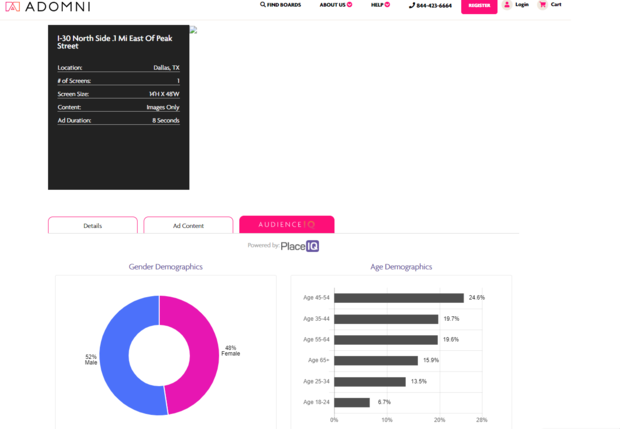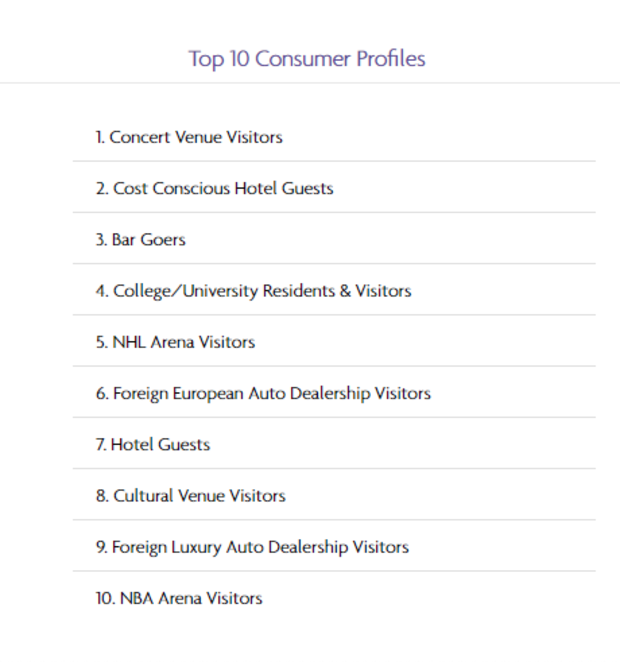Digital Screens Track Our Behavior For Target Advertising: 'We're Not Using Info To Find Where You Live'
DALLAS (CBSDFW.COM) - Companies are not just tracking our information online anymore. Now they're tracking our physical whereabouts, too.
Everyday fixtures are watching consumers in the car, at the mall, in the elevator, even while they're filling up their tanks at gas stations.
The question up for debate is whether the public should be worried.
Digital screens are equipped with the technology to track consumers' every move.
"We're doing it so you can start following that person down the street if we wanted to," said John Coffey, with NewTek Web Consulting in Oklahoma.
Coffey explained that the ads projected by screens are not always random. Rather, the ads can change based on the audience in the area.
"We've done work for car dealerships where we saw them come on the website, we saw what they were looking for, then later, when they're driving down the street, we can deliver a message on a billboard with the exact specific thing they're looking for," Coffey said.
However, Coffey also stated marketers are not typically directly targeting specific individuals due to cost-effectiveness. He said what is far more common is targeting a larger group of shoppers.
"We're not using information to find out where you live, we're using your information to share with you and people like you trends and things happening in the marketplace," Coffey said.
Alanna Autler: "Can billboards track you?"
Frank O'Brien, CEO of Five Tier: "Billboards themselves can't track you, it's the devices attached to billboards and attached to us."
Five Tier is a New York-based marketing platform.
O'Brien is able to control which ads appear on billboards and other screens with a single click of a button on his phone.
"Apps are by far the easiest way to cull data because you're getting data that includes usage time, angle of the phone, altitude of a phone," O'Brien said. "Phone data is by far the most useful and accurate."
He explained cellular devices contain everything advertisers want to know including people's Internet search history to GPS location. Digital screens are equipped with devices that can then read that data.
Businesses can also obtain information from phone companies.
O'Brien said "anonymous data" such as the color or make of your car is far more useful to advertisers than knowing your full name.
"This data has been around for decades, it's just been more pen and paper," said O'Brien, who added that Five Tier encrypts all its data. "Nowadays, it's just all digitized."
O'Brien said companies can only use and collect certain information a consumer has "opted" to share. This consent typically comes in the form of downloading apps or programs and agreeing to the terms and conditions.
Thomas Germain with Consumer Reports wrote about this phenomenon last fall.
"Some of the most intimate details of our lives are useful for advertising purposes," Germain said.
But that doesn't mean companies are maintaining and using that information.
Germain said while companies can access your highly identifiable information, such as your name or email, that's not typically the jackpot.
"Generally, that's not useful to the companies. Instead they're more interested in what you're like or what your behavior is," Germain said.
But information, such a person's income or sexuality, could still be considered deeply personal.
"You just need to know what it is you're sharing and to who," said Michael Braun, an associate professor of marketing at the Cox School of Business at Southern Methodist University.
Braun advised to adjust your privacy settings and revoke permissions from apps to share your data. Read the terms and conditions for every app requesting data.
"You just need to be aware that some apps may be really good about not sharing info with third parties," Braun said. "Others, that may be how they make money."
To some, this notion may underscore a world with more surveillance. To O'Brien, it's a world that's far more relevant.
"One thing I always like to say, I want to walk through this world and have it tell me about things I care about," O'Brien said.
The company Adomni created an interactive map that identifies digital screens by zip code. It is unclear how many screens have the capability of tracking data.
But some billboard and screen locations list common target demographics in the area.










